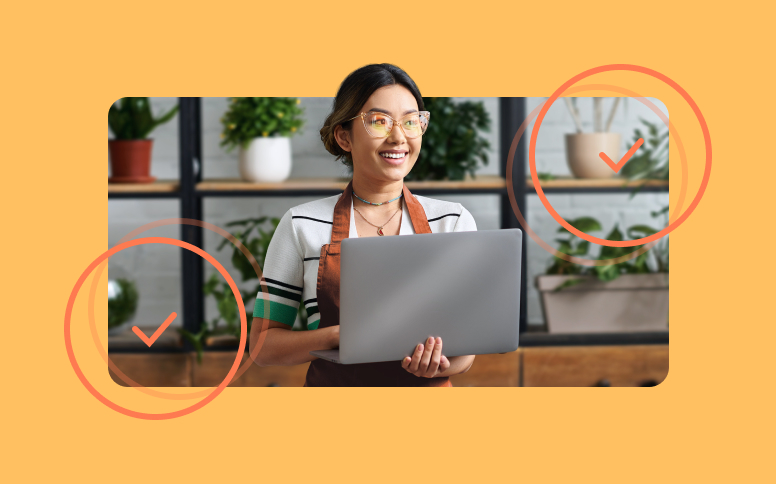The Future of Law: Integrating Mobile Apps into Legal Practice
A noteworthy technological progress in times is the incorporation of mobile applications into legal operations. These apps are changing how attorneys carry out their work, interact with clients, and handle their caseloads.
Current State of Technology in Legal Practice
Technology has steadily made its way into law practice despite initial resistance. For instance, electronic filing systems, online client portals and legal databases have become commonplace. Some of the benefits of these innovations include:
1. Increased Accessibility and Flexibility
Through mobile apps lawyers can access case files, legal research as well as other key documents using their handheld devices wherever they are—in a courtroom, at a client’s office, or even while commuting or traveling. The flexibility provided by mobile apps can greatly enhance productivity and improve work-life balance.
2. Better Communication with Clients
Efficient communication is central to any thriving legal practice. Mobile applications allow attorneys to maintain a constant touch with their clients through updates, answering queries, and addressing concerns promptly. Being engaged with clients at that level helps in building trust and establishing long-term relationships.
3. Notifications And Updates In Real Time
Clients want to be kept informed about the progress of their cases. Through these apps, clients receive notifications when there is a court date or deadline, for instance. This ensures that clients are always aware of what is happening, thus ensuring timely actions when required.
4. Secure Messaging Platforms
Confidentiality is a cornerstone of legal practice. Secure messaging platforms within mobile apps ensure that communication between lawyers and clients remains private and protected from unauthorized access.
5. Streamlined Case Management
Managing legal cases involves navigating through a labyrinth of documents, schedules, and deadlines. Mobile apps integrate diverse tools to simplify this process, functioning like a Swiss army knife for legal professionals, and consolidating their tasks into one cohesive platform.
6. Document Management Systems
In the digital age, document handling is crucial for lawyers. Mobile apps provide robust systems where documents can be scanned, uploaded, and meticulously organized. This eliminates the inefficiencies of physical storage, offering instant retrieval and enhanced accessibility—a virtual repository at their fingertips.
7. Scheduling and Calendar Integration
The lifeblood of legal practice revolves around meticulous scheduling and calendar management. Mobile apps seamlessly synchronize with existing calendars, empowering lawyers to orchestrate their agendas effortlessly—a digital assistant adept at time management.
8. Cost-Effectiveness
Mobile apps wield significant cost-cutting potential for law firms. By automating routine tasks and minimizing the demand for physical office space, they optimize operational efficiency and financial resources—a strategic investment in modernizing legal operations.
Types of Mobile Apps for Legal Practice
When it comes to mobile apps for law firms, the options are extensive and crucial for modern legal practice. Here are several key categories:
Case Management Apps
Case management apps are comprehensive tools designed to streamline the workflow of legal professionals. They facilitate case tracking, deadline management, and client data organization.
These apps integrate features such as calendar management for scheduling hearings and meetings, task tracking to monitor progress on case-related activities, and secure document storage to ensure confidentiality.
Document Management Apps
Document management apps are essential for handling the extensive paperwork that legal practices entail. They enable lawyers to scan, store, and share documents securely from their mobile devices.
These apps often include tools for efficient document organization, version control to track changes, and quick retrieval of necessary documents during legal proceedings.
Communication and Collaboration Apps
Effective communication and collaboration are vital for legal teams to work cohesively and serve their clients efficiently. Communication and collaboration apps facilitate seamless interaction through messaging platforms, video conferencing tools, and collaborative workspaces.
Apps like Flowlu enable real-time communication among team members, enhance client interaction through secure channels, and support team collaboration for task management.
Legal Research Apps
Legal research is a cornerstone of legal practice, and mobile apps have revolutionized access to legal information. Legal research apps provide lawyers with instant access to comprehensive legal databases, including case law, statutes, and regulations.
These apps empower legal professionals to conduct thorough research directly from their mobile devices, enabling them to stay updated on legal developments, formulate effective legal strategies, and make informed decisions for their clients.
Billing and Time-Tracking Apps
Financial management is critical for law firms to maintain profitability and transparency in client billing. Billing and time-tracking apps allow lawyers to accurately track billable hours spent on client matters, manage invoicing processes, and monitor expenses related to cases.
Apps like Flowlu include time recording tools, invoice generation capabilities, and expense management functionalities, ensuring accurate financial reporting and client billing transparency.
Challenges and Considerations
1. Data Security and Privacy
Ensuring data security and privacy is a critical concern in legal practice when using mobile apps. Law firms handle highly sensitive information, and any security breach can lead to severe consequences. Therefore, implementing robust security measures is essential.
2. Encryption Standards
To safeguard sensitive data, mobile apps must employ advanced encryption standards. Encryption ensures data security during transmission (while being sent between devices) and storage (on servers or devices). AES (Advanced Encryption Standard) with 256-bit keys is widely recommended for its high-level security, making unauthorized access extremely difficult.
3. Regulatory Compliance
Legal professionals must ensure that the mobile apps they use comply with relevant regulations such as GDPR (General Data Protection Regulation) for clients in the European Union or HIPAA (Health Insurance Portability and Accountability Act) for handling health information in the United States.
Compliance requires not only secure technology but also the implementation of policies and procedures to protect client data. Non-compliance can result in significant fines and legal penalties.
4. Integration with Existing Systems
Integrating new mobile apps with current systems can be challenging for law firms using various software for document management, billing, and case tracking.
Choosing mobile apps that integrate seamlessly with these systems is crucial to prevent disruptions and ensure a smooth transition. This may involve using APIs (Application Programming Interfaces) to connect different software platforms and facilitate seamless data flow.
5. User Training and Adoption
Effective use of mobile apps in legal practice requires proper training for legal professionals on app features, security protocols, and best practices.
Encouraging adoption across the firm is vital for maximizing benefits, which may include regular training sessions, user manuals, and ongoing support. Soliciting feedback from users helps continually improve app integration and functionality.
Steps to Integrate Mobile Apps into Your Legal Practice
1. Assessing Needs and Objectives
Begin by identifying your practice's specific requirements. Determine which areas would benefit most from mobile apps and establish clear goals for what you aim to accomplish.
Ask yourself questions such as: Do you need to enhance case management? Improve communication? Ensure better billing accuracy? Understanding your needs will help you focus on appropriate solutions.
2. Selecting the Right Apps
Evaluate different app options based on their features, compatibility, and user feedback. Select apps that align with your practice's objectives and integrate seamlessly with your current systems.
Look for apps that offer trial periods or demonstrations so you can assess their functionality before making a commitment. Consider user reviews and ratings to gauge the reliability and support of each app.
3. Training and Implementation
Facilitate a smooth adoption process by providing comprehensive training for your team. This includes organizing workshops, developing user manuals, and offering personalized training sessions as needed.
Introduce the apps gradually, allowing time for adaptation and addressing any issues that arise. Encourage feedback from your team to refine the implementation process and make necessary adjustments.
4. Customization and Optimization
Many mobile apps provide customization features to align with your practice's workflows. Utilize these options to tailor the apps to your specific needs. Optimize settings and features to enhance efficiency and productivity. Regularly review and update these configurations as your practice evolves.
5. Monitoring and Support
Post-implementation, continuously monitor how the mobile apps perform. Track their usage and assess whether they meet your initial objectives. Provide ongoing support to your team to resolve any issues promptly and keep them informed about new features or updates. Designate a technical support contact to handle any technical problems efficiently.
6. Evaluating Success and Making Adjustments
Periodically evaluate the effectiveness of mobile apps in your practice. Determine whether they are achieving your initial goals. Make adaptations as necessary, whether by adjusting apps, refining workflows, or offering additional training. Continuous improvement is crucial for maximizing the benefits of mobile apps in your legal practice.
The Future of Mobile Apps in Legal Practice
AI and Machine Learning Integration
The future direction of mobile apps in legal practice hinges on incorporating AI and machine learning. These technologies can automate routine tasks, analyze extensive data sets, and offer predictive insights.
Virtual Reality Courtrooms
Virtual reality (VR) is an emerging technology poised to revolutionize legal proceedings. VR courtrooms could enable remote hearings and deliver immersive experiences for presenting cases.
Blockchain for Secure Transactions
Blockchain technology provides a secure method for managing transactions and storing data. Its potential applications in legal practice include secure contracts, identity verification, and tamper-proof evidence storage.
Conclusion
The adoption of mobile apps in legal practice is reshaping how lawyers conduct their work, communicate, and handle tasks.
While there are hurdles to address, the advantages of mobile technology for legal professionals—such as increased efficiency, better client satisfaction, and maintaining competitiveness in a digital age—significantly outweigh the challenges.
Flowlu, an all-in-one business management software, exemplifies how mobile apps can streamline legal practice operations. By integrating features like case management, secure messaging, and document management, Flowlu can transform your legal practice into a more efficient and client-focused operation. Start your journey towards modernizing your legal practice with Flowlu today!
Mobile apps enhance communication and collaboration by providing secure messaging platforms, real-time updates, and collaborative workspaces. Apps like Flowlu enable seamless interaction among team members and clients through secure channels, video conferencing tools, and shared document review features. This ensures constant engagement, builds trust with clients, and facilitates effective teamwork within legal firms.
Several types of mobile apps are crucial for modern legal practices, including:
- Case Management Apps
- Document Management Apps
- Communication and Collaboration Apps
- Legal Research Apps
- Billing and Time-Tracking Apps
The key challenges in integrating mobile apps into legal practice include:
- Data Security and Privacy
- Integration with Existing Systems
- User Training and Adoption










